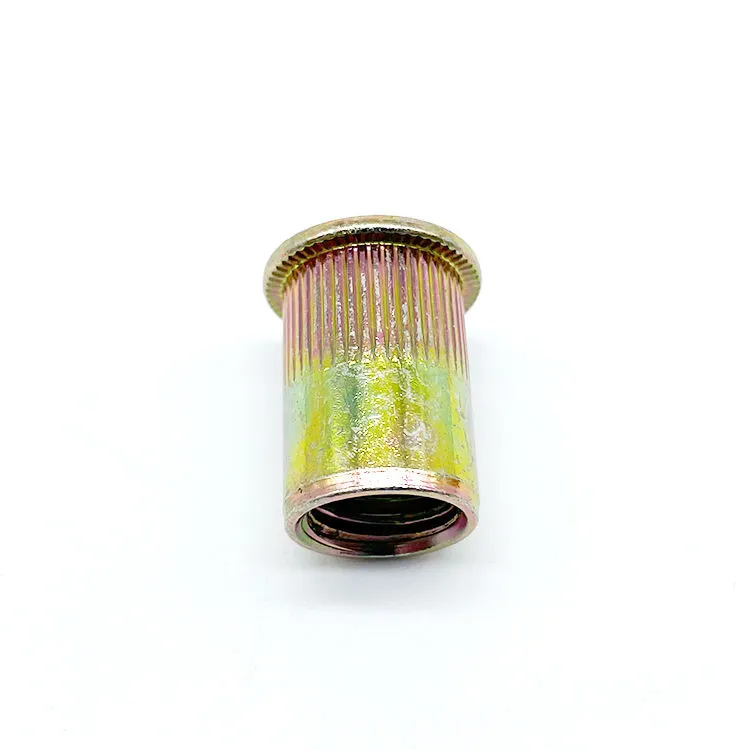

Choosing the Right Small Spring Washers for Your Projects and Applications
Nov . 26, 2024 10:42 Back to list
Choosing the Right Small Spring Washers for Your Projects and Applications
Understanding Small Spring Washers A Comprehensive Overview
Small spring washers, often referred to simply as spring washers, are integral components in various engineering and manufacturing applications. These simple yet effective devices are designed to provide tension, maintain load, and prevent loosening in assembled components. In this article, we will explore the key features, applications, and advantages of small spring washers, highlighting their importance in modern mechanics.
What are Small Spring Washers?
Spring washers are specialized metal washers characterized by their curved or spring-like shape. This design enables them to exert a continuous radial force against mating parts, enhancing bolt preload and maintaining tension in bolted joints. Small spring washers are typically found in applications where space is limited, making them ideal for smaller fasteners, such as screws and bolts.
The most common type of small spring washer is the split type, featuring a gap that allows for a controlled amount of elasticity. Other varieties include conical washers, wave washers, and Belleville washers, each serving specific functions based on the required load-bearing and deformation characteristics.
Applications of Small Spring Washers
Spring washers are employed across a diverse range of industries and applications. Some of the most notable include
1. Automotive Industry In the manufacturing of vehicles, small spring washers help ensure the reliability of connections in various assemblies, such as engines and suspension systems. Their ability to maintain clamping force is crucial for vehicle safety and performance.
2. Electronics Small spring washers are used to secure components within circuit boards and electrical enclosures. They assist in preventing loosening due to vibration and thermal expansion, which are common in electronic devices.
3. Construction and Machinery These washers are prevalent in heavy machinery and construction equipment, ensuring that critical components stay securely fastened under dynamic loads.
small spring washers

4. Aerospace In the aerospace sector, where lightweight materials and compact designs are essential, small spring washers provide effective tensioning solutions that meet strict safety standards.
Advantages of Small Spring Washers
The use of small spring washers brings numerous benefits, making them a preferred choice in various applications
- Vibration Resistance One of the primary advantages of spring washers is their ability to absorb vibrations. This is particularly important in applications subjected to constant movement, reducing the risk of fastener loosening over time.
- Load Distribution Spring washers can distribute loads more evenly across the surface of the connected parts, reducing stress concentrations that might otherwise lead to material failure.
- Durability and Reliability Constructed from high-quality materials, such as stainless steel or carbon steel, small spring washers are engineered to withstand harsh conditions and provide long-lasting performance.
- Cost-Effectiveness Their simple design and functionality contribute to lower manufacturing and maintenance costs in various applications, making them an economical choice for many industries.
Conclusion
In summary, small spring washers play a crucial role in modern engineering and manufacturing, providing essential benefits such as vibration resistance, load distribution, and reliable performance. Their versatility allows for widespread use in multiple sectors, including automotive, electronics, construction, and aerospace. As technology continues to advance, the evolution of small spring washers will undoubtedly lead to innovative designs that further enhance their functionality and application in complex engineering challenges. Understanding and utilizing these components effectively can lead to better assembly practices and enhanced product reliability, underscoring their significance in the world of mechanics.
Latest news
-
Hot Dip Galvanized Bolts-About LongZe|High Strength, Corrosion Resistance
NewsJul.30,2025
-
High-Strength Hot Dip Galvanized Bolts - Hebei Longze | Corrosion Resistance, Customization
NewsJul.30,2025
-
Hot Dip Galvanized Bolts-Hebei Longze|Corrosion Resistance&High Strength
NewsJul.30,2025
-
High-Strength Hot-Dip Galvanized Bolts-Hebei Longze|Corrosion Resistance&High Strength
NewsJul.30,2025
-
Hot Dip Galvanized Bolts-Hebei Longze|Corrosion Resistance&High Strength
NewsJul.30,2025
-
Hot Dip Galvanized Bolts - Hebei Longze | Corrosion Resistance, High Strength
NewsJul.30,2025

